PCOS Treatment
One in every 10 women in India has polycystic ovary syndrome (PCOS), a common endocrinal system disorder among women of reproductive age, according to a study by PCOS Society. And out of every 10 women diagnosed with PCOS, six are teenage girls.
What is PCOS?
In women with PCOS (Polycystic Ovary Syndrome), the ovaries produce higher levels of androgen than usual, which interferes with development and release of the eggs. Some of the eggs develop into cysts, which are the little sacs filled with liquid. Instead of being released during ovulation, these cysts build up in the ovaries and at times even get enlarged.
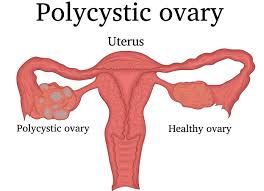
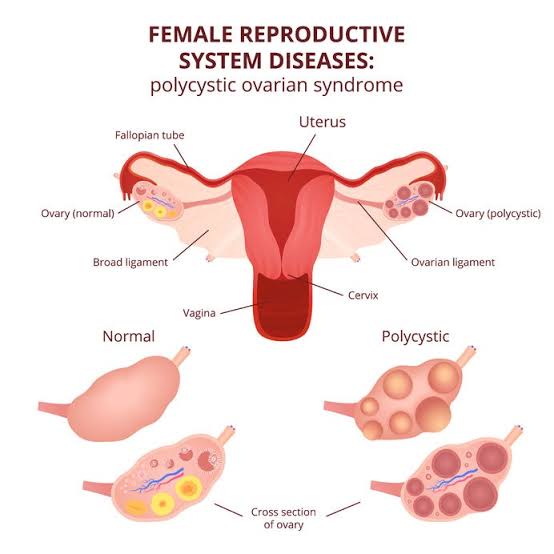
Symptoms
The most common PCOS symptoms are:
A) Irregular periods:
Either periods don’t occur on monthly basis or are scanty A lack of ovulation prevents the uterine lining from shedding every month. Some may have heavy bleeding. The uterine lining builds up for a longer period of time, so the periods you do get can be heavier than normal.
B) Hair growth:
More than 70 percent of women with this condition grow hair on their face and body — including on their back, belly, and chest Excess hair growth is called hirsutism.
C) Acne:
Male hormones can make the skin oilier than usual and cause breakouts on areas like the face, chest, and upper back.
D) Weight gain:
Up to 80 percent of women with PCOS are overweight or obese.
E) Male-pattern baldness:
Hair on the scalp gets thinner and fall out.
F) Darkening of the skin:
Dark patches of skin can form in body creases like those on the neck, in the groin, and under the breasts. It’s called Acanthosis nigricans ( feature of insin resistance).
G) Headaches :
Hormone changes can trigger headaches in some women.
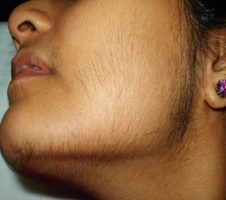
Hirsutism
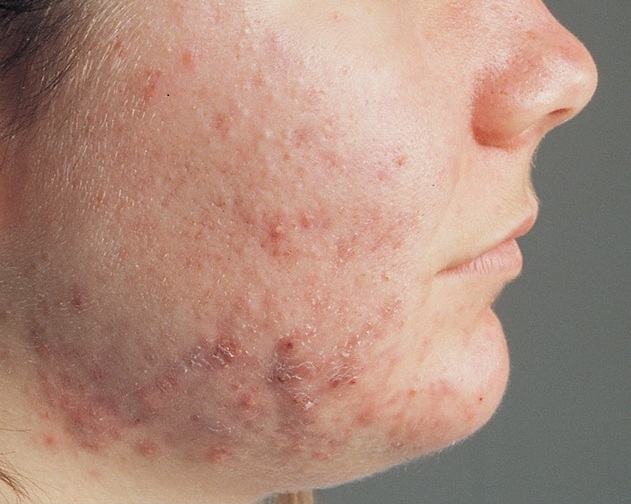
Acne
Prevention of PCOS :
- Diet changes
- Supplements
- Herbs
- Probiotics
- Healthy weight
- Regular exercise
- Sleep hygiene
- Stress management
- Consultation with your doctor for better guidance
A) Diet changes :
Eating the right foods and avoiding certain ingredients may help you manage your symptoms. A nourishing diet can help regulate your hormones and your menstrual cycle. Eating processed, heavily preserved foods can contribute to inflammation and insulin resistance.
Instead of trying a low-carb diet, focus on getting enough healthy protein. Plant-based protein sources, such as nuts, legumes, and whole grains.
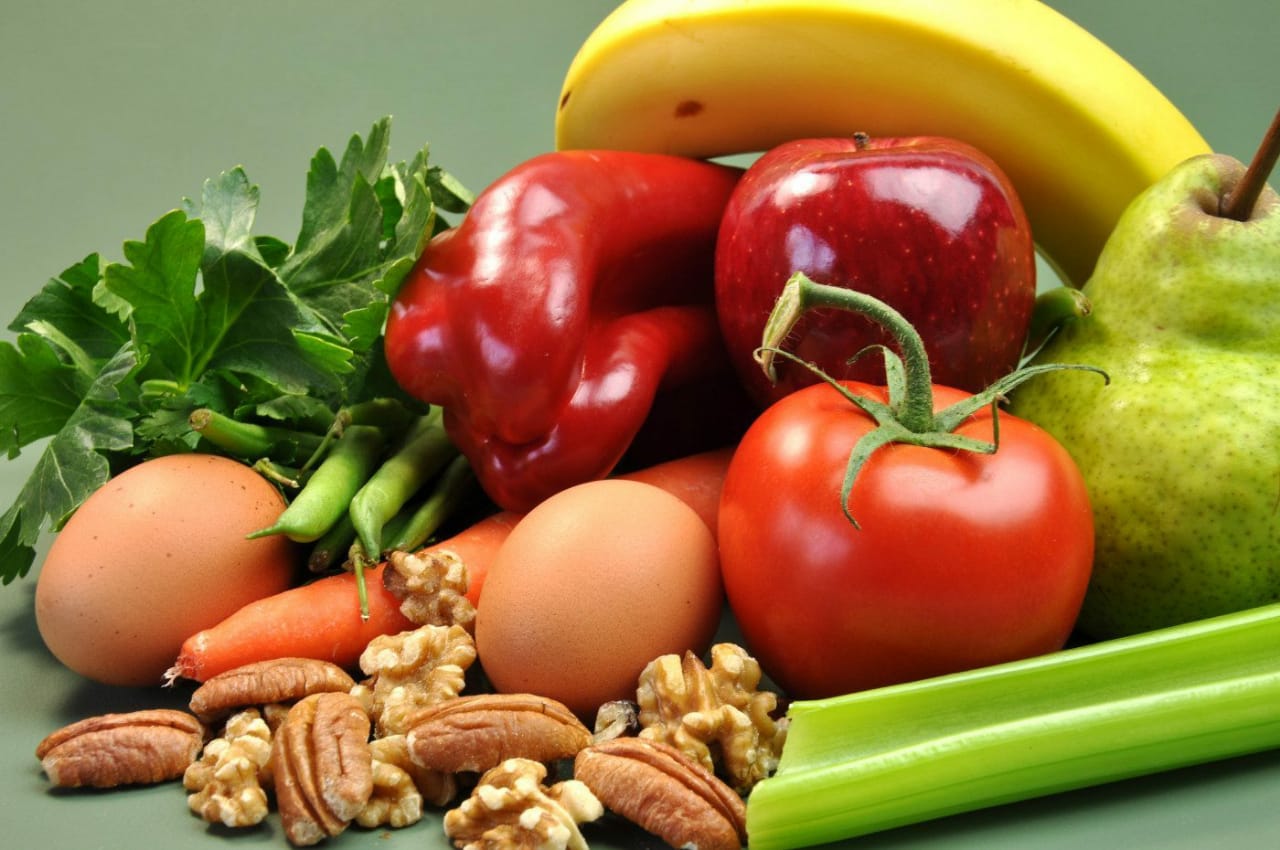
- Balance carb and protein intake:
It's all about whole foods. Whole foods are free from artificial sugars, hormones, and preservatives.
- Aim for anti-inflammatory food :
Adding anti-inflammatory foods to your diet can help ease your symptoms. Olive oil, tomatoes, leafy greens, fatty fish and tree nuts all fight inflammation.
- Cut out coffee :
Consider soy products. Without hormones and preservatives, your endocrine system can better regulate your blood sugar.
Excess Caffeine consumption may be linked to changes in estrogen levels and hormone behavior. Try boosting.
- Up your iron intake :
Some women with PCOS experience heavy bleeding during their period. This can result in iron deficiency or anemia. They may recommend adding iron-rich foods such as spinach, eggs, and broccoli to your diet.
- Up your magnesium intake :
Almonds, cashews, spinach, and bananas are PCOS-friendly foods rich in magnesium.
- Add in some fiber to help with digestion :
A diet high in fiber can help improve your digestion. Lentils, broccoli, sprouts, pears are all rich in fiber.
B) Supplements:
Supplements claim to help with hormone regulation, insulin resistance, and inflammation associated with PCOS.
Speak to your doctor before taking any supplement. Some of them can actually interfere with other prescribed PCOS treatments and medications.
- Inositol:
Inositol is a B vitamin that can help improve insulin resistance. It’s also been found to help with fertility in some cases of PCOS.
- Chromium :
Chromium supplements may improve your body mass index, which can help with PCOS. They may also stabilize insulin resistance by helping your body metabolize sugar.
- Cinnamon:
Cinnamon may have a positive effect on insulin resistance. Cinnamon also may regulate menstruation.
- Turmeric:
The active ingredient in turmeric is called curcumin helps in decreasing insulin resistance and works as anti-inflammatory agent.
- Zinc:
Zinc is a trace element that can boost fertility and your immune system.
You can also eat red meat, beans, tree nuts, and seafood to get more zinc in your diet.
- Evening primrose oil:
Evening primrose oil has been used to help with period pain and irregular menstruation. It may improve cholesterol levels and oxidative stress, both of which are linked to PCOS.
- Combined Vitamin D and Calcium :
Vitamin D is a hormone that’s vital to your endocrine system. Vitamin D deficiency is common in women with PCOS. Vitamin D and calcium may improve irregular periods and help you ovulate.
C) Herbs:
- Berberine:
Berberine is an herb used in Chinese medicine to help with insulin resistance. If you have PCOS, Berberine may increase your metabolism and balance your body’s endocrine responses.
- Ashwagandha:
Ashwagandha is also called “Indian ginseng.” It can help balance cortisol levels, which could improve stress and symptoms of PCOS.
D) Probiotics:
Probiotics don’t just help with your digestion and gut health. They can also reduce inflammation and regulate sex hormones like androgen and estrogen.
E) Healthy weight :
Maintain a healthy weight : Maintaining a healthy weight can help decrease insulin resistance, regulate your period and reduce your risk of conditions associated with PCOS. If you’re overweight, some studies suggest gradual weight loss through a low-calorie diet as a promising first-line treatment for PCOS.
F) Regular Exercise :
Balance your exercise : Exercise is important for maintaining a healthy weight. But too much exercise can disrupt your hormones, so talk with your doctor about a healthy balance.
Gentle, low-impact exercises like yoga or Pilates can be practiced for longer durations. Swimming and light aerobics are also recommended.
High-intensity interval training and long-distance running may also help improve symptoms of PCOS.
G) Sleep hygiene :
Practice good sleep hygiene : Sleep affects your stress levels and helps regulate cortisol to balance your hormones.
H) Stress Management :
Reduce stress:
Reducing stress can regulate cortisol. Many of the strategies mentioned above, such as yoga, getting enough sleep, and cutting caffeine, can contribute to lower stress levels.
Taking walks outside and creating space in your life for relaxation and self-care can also reduce your stress level.
I) Consultation with your doctor for better guidance :
Complications and Treatments of PCOD :
- Infertility.
- Gestational diabetes or pregnancy-induced high blood pressure.
- Miscarriage or premature birth.
- Nonalcoholic steatohepatitis — a severe liver inflammation caused by fat accumulation in the liver.
Treatment consists of hormones: Treatments include birth control pills to regularize periods, medication called metformin to prevent diabetes, statins to control high cholesterol, hormones to increase fertility and procedures to remove excess hair.
OPD Timings
Dr. Mandar R Gadgil
| Mon – Fri | - | 4:30 PM - 7:30 PM w.e.f. 27th August 2022 |
| Saturday | - | 10:00 AM - 11:30 AM |
OPD Timings
Dr. Maithilee Gadgil
| MON – SAT | - | 10:00 AM - 12:30 PM |
| MON – FRI | - | 4:30 PM - 07:00 PM w.e.f. 27th August 2022 |
Any Question Or Query
Feel free to ask for your any Question or Query /
Book An Appointment
Appointment
To book appointment call us on

